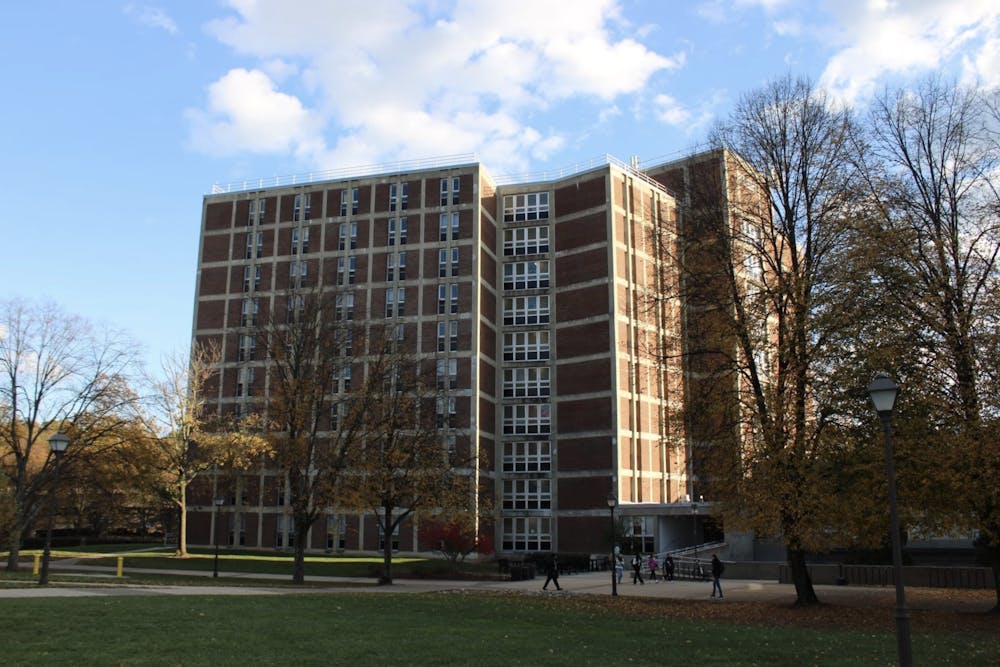By Tristan Weisenbach
Arts & Entertainment Editor
At a recent Residential Education and Housing meeting, representatives outlined a potential new policy that the College may implement in the future that would require all first-year students to reside on campus.
While there were a few noted exemptions to this policy that would likely be included, such as financial need, health conditions and students who live with their parents or guardians within 10 miles of campus, the idea itself is still likely to turn away prospective students.
At the ResEd meeting, David Cruz, associate director of housing, stated that one of the main factors that prompted administration to explore this policy was that half of commuter students at the College are not a member of a co-curricular activity, according to a recent survey ResEd conducted.
While it is a striking statistic, forcing nearly all first-year commuter students to live on campus as a way to remedy this is not the most beneficial way of doing so.
There are many ways for students to get involved on campus without residing here. The College is home to over 230 recognized student organizations, and the fact that half of commuters say they’re not involved in any is not a result of living off-campus. It’s a result of unawareness.
At the beginning of each semester, students have the opportunity to attend an involvement fair where nearly all student organizations are represented. However, one opportunity per year during the first week of classes is not enough.
The first week of classes for first-year students, especially commuters, can be a stressful time — at least it was for me. Finding my classes, adjusting to the increased workload of college classes and figuring out how much time to give myself to drive to campus so I made it here on time were all more important to me that first week than finding clubs to join.
Having more involvement fairs throughout the semester so that students have ample time and opportunities to get involved would likely increase the involvement of commuter students.
The first-year requirement is not only a bad idea in terms of solving the low campus involvement of commuter students though. Now that the College is facing increasing financial struggles and a decreasing number of student applicants each year, forcing first-year students to live on campus — and pay the extra thousands of dollars each semester to do so — will only worsen these issues.
Besides the fact that I believe the College provides a well-rounded education, one of the main reasons why I chose to attend the College to further my education was because it was relatively affordable compared to the other schools I applied to. Being able to commute to campus while living at home, just a 25 minute drive away, was convenient and financially affordable for me.
If the College had a first-year residency requirement in place when I was a first-year student, I likely would not have committed here simply because it would have been unaffordable. Room and board, along with a required meal plan, would cost an additional $6,000 per semester or more.
Adding the costs of room and board and a required meal plan to the cost of tuition and textbooks would effectively double the total cost of attending the College each semester for me.
One thing that I believe many people may overlook regarding this potential policy, however, is the current state of first-year residential buildings. In February 2022, former President Kathryn Foster sent an email to the campus community stating that the Travers and Wolfe Towers would be phased out over the next two years and were scheduled to be closed entirely in the fall of 2024.
In the email, Foster stated that the College was “aggressively pursuing the development of new residences,” but these plans now seem up in the air.
In a later interview with The Signal in March 2023, Foster stated that the plans for replacing the Towers turned out to be more challenging than expected. The Towers are now expected to remain open until new first-year housing is constructed, which has been extended to the fall of 2026.
Travers and Wolfe Towers, along with other first-year residential halls like Centennial, do not have air conditioning. Earlier this semester, some students needed medical attention due to the extreme temperatures inside their dorms.
The living conditions for first-year students are not ideal, and with plans to close the largest first-year dorm buildings next year with no announced plan from the College yet on replacing them, mandating first-year students to live on campus is not an appealing policy that’s going to attract prospective students to want to attend the College.
A policy that would force first-year students to pay a high cost of room and board for dorms that are not appealing or attractive is not a good idea. Additionally, this policy is not the best way to encourage commuter students to get involved on campus. The College should be spending more time and effort to provide resources and opportunities for students to get involved rather than essentially forcing them to — and taking thousands of dollars more per student each year while they’re at it.







